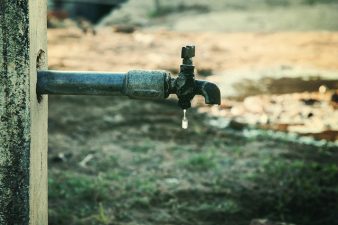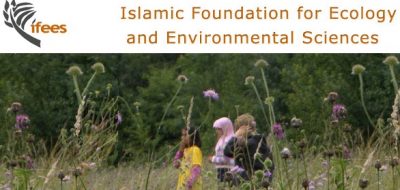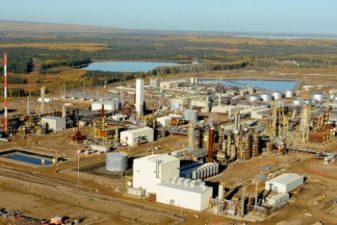 We speak to Muaz Nasir about his faith-focused environmental work in Canada and why the Muslim community can’t afford to sideline climate change
We speak to Muaz Nasir about his faith-focused environmental work in Canada and why the Muslim community can’t afford to sideline climate change
“The environment is something everyone should be concerned about as climate change, water scarcity and pollution are issues that do not discriminate based on faith:” That’s Muaz Nasir’s response to what he likes to call constructive criticism that the Muslim Ummah focus its energies on ‘bigger issues’ rather than climate change.
Personally, I can’t imagine a ‘bigger issue’ then the future of our planet but I completely accept that this realisation hasn’t quite reached the wider Muslim community. Ground-breaking policies such as the Muslim Seven Year Action Plan on Climate Change were impressive but as Nasir points out, but they failed to “develop the necessary research or resources that would push the climate agenda into the mainstream Muslim community.”
As such, any progress has been slow and the product of hard working individual campaigners rather than national policies. Read on for more about the Muslim-environmental movement in Canada, Nasir’s green Muslim website Khaleafa.com and how he getting mosques to ‘Ban the Bottle’ among other green ideas he is working to implement in the Muslim community – ideas which can spread around the world.
Firstly, could you tell us a little about yourself, your background and what brought you to the environmental work you at Khaleafa.com?
My name is Muaz Nasir and I am the editor of the Muslim-environmental blog khaleafa.com. I would like to say that I always had a long-standing passion for everything environmental, but it was not until university that I really started to consider myself an environmentalist. Throughout my life I felt I did have a connection with the natural world. I always recycled, conserved energy, enjoyed being outdoors and and had an appreciation for farming; but I never considered myself as part of a larger movement. It was a first-year introductory course in environmental science that spurred my interest that later led me to specialize in the field in both my undergraduate and graduate studies. Since then my professional career has been predominantly in the environmental field within non-profit, private, government and institutional sectors.
How and why did you start off Khaleafa.com?
Over the years I attended many environmental events where I was asked about the Muslim perspective on environmentalism. Many wanted to know what Islam had to say about conservation, animal rights and fair trade, as well what activities the Muslim community was involved in. There were other amazing Muslim environmental websites available, however many were based in Europe or the Middle East, and did not reflect some of the challenges and issues faced in North America. So it was out of this need for discussion that Khaleafa.com was born.
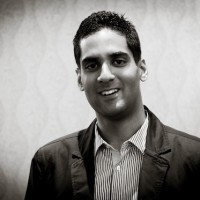 What have been the responses to Khaleafa.com – have you had to face any negative reactions or had to deal with climate sceptics?
What have been the responses to Khaleafa.com – have you had to face any negative reactions or had to deal with climate sceptics?
The response has been overwhelmingly positive for the most part. I try to keep my articles as neutral as possible, and encourage contributors to base their arguments on facts and to justify their opinions with reference to the Quran, Hadith and Sunnah. This allows readers to formulate their own opinions with the information provided. The articles have been well received and featured on various websites including SuhaibWebb, IslamOnline and recently Productive Muslim.
There has been some negative feedback as well, mainly in the form of constructive criticism but also from individuals who feel that Muslims should be investing their resources to deal with bigger issues facing the Ummah. While I understand the direction they are coming from, my response has been that the environment is something everyone should be concerned about as climate change, water scarcity and pollution are issues that do not discriminate based on faith. We all have a collective obligation to ensure that we leave the planet in better condition for future generations and that we do not waste the resources Allah has blessed upon us.
I understand you are based in Toronto. Could you tell us about the state of the environmental movement in the country with a special focus on its engagement with the Muslim community
The environmental movement has changed considerably over the last several years. In Canada the tar-sands have become a big driver of our economy and there have been ongoing disputes over the creation of new pipelines through sensitive habitats. This has shaped policy development at the federal level and the environmental movement has been on the defensive after the passage of new legislation. Despite this, environmentalism continues to grow within the Muslim community. Islamic organizations are installing solar panels and building community gardens. They are evaluating themselves and asking questions about the food we eat, the waste we produce and the environmental and social impacts of the products we purchase. Young Muslims have played an integral role in the development of this movement and organizations such as CivicMuslims have raised the environmental profile within the community here in Toronto.
What do you think are the barriers holding the Muslim community from fully engaging with the climate change agenda?
I think there is a general lack of awareness of the severity of climate change as well as what actions individuals can do to decrease their carbon footprint. The issue is just not on the radar of many Islamic institutions here in North America as it is in Europe. The Muslim community in Canada is fairly young, so there are understandably competing priorities, such as establishing their families and integrating into the broader society; which often takes precedence over the climate change agenda. This is beginning to change as weather patterns shift and the trends in the climate become more visible.
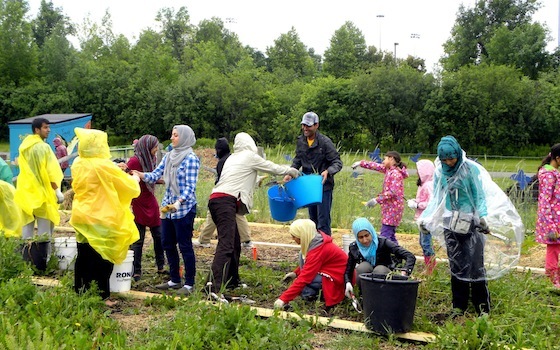 Proudest moments of Khaleafa so far and why?
Proudest moments of Khaleafa so far and why?
This past Spring, Khaleafa.com launched a successful Green Khutbah Campaign to coincide with Earth Day which garnered the support of over 75 Imams/Organizations across North America, Europe and Africa. The campaign posed a challenge to Muslims to become stewards of the Earth by making changes to their daily routines and encouraged mosques, schools, universities and Islamic Institutions in North America to devote their Friday Khutbah to raise awareness on the environmental challenges facing humanity. The campaign was designed to be a local initiative, but it quickly went viral and over the course of only two weeks we had e-mails of support coming in from across the world. It was uplifting to see that one simple campaign had such a large impact globally and it renewed my commitment to the cause.
Recently, Khaleafa.com was nominated for the Brass Crescent Award for “Best New Blog.” It is humbling to be considered alongside such great writers in this category, and to be recognized for all the work we did this past year. The support from friends and family has also been amazing as well as the readers like and share the articles through Facebook. Even if we do not win, I am glad to know that the environmental message is still getting out there.
[Arwa: Polls close on the 21st of October so you can still vote for Khaleafa.com here.]
What you would change if you ruled the world for a day?
That is an ambitious question! There are many things I would like to change in the world such as alleviating world poverty, ending the destruction of our natural areas and eliminating animal cruelty, but a lot of these issues cannot be changed overnight. If I were in charge for one day I would encourage the world to live by the principles of Muhammad (SAW) such as showing respect, humility and integrity towards the environment and their dealings with their fellow man. I really do believe that fostering a closer connection to nature from a spiritual perspective can alleviate the social, environmental and ecological issues that face society today.
Any upcoming plans or projects that we can look forward to?
This fall there are plans to expand the environmental movement into mosques with the launch of the “Ban the Bottle” campaign targeting disposable water bottles in Islamic institutions. This will include providing promotional material, resources and educational tools for organizations considering alternatives to bottled water. There will also be the launch of a new series profiling Canadian mosques and will highlight some of the creative and unique environmental projects that Muslims are already engaged in.
For more on Muslim campaigners see:
What Can Islam Do for the Environment? Lots, Actually…
Host Greener Iftars at Mosque says Imam Zaid Shakir (VIDEO)
Sharing Eden – Green Teachings From Muslims, Jews and Christians
Sofiah Jamil Talks Faith, Women and Climate Justice
London Mosques Start Beekeeping Trend – Interview
Green Muslims Top ‘Muslim 500’ List

